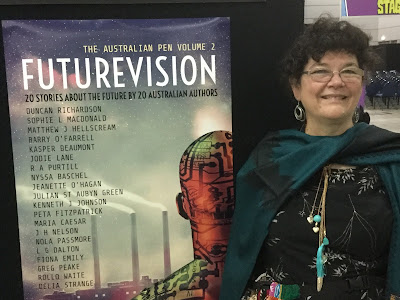By Mazzy Adams
In a world overrun with complex problems and dilemmas, it’s tempting to embrace the ‘Keep it Simple’ mantra as the only sensible solution, if not the obvious saviour. Undoubtedly, the Keep it Simple principle has merit, but complex problems, situations, or opportunities do arise that may require a complex problem-solving approach.
Recently, when a maths student requested ‘complex unfamiliar’ practice problems to do, my beloved recommended she work through the examples provided in a textbook. ‘That’s no good,’ she said. ‘I need problems that are complex unfamiliar, ones I’ve never seen or practiced before!’ He was hard-pressed to convince her that ‘unfamiliar’ meant ‘unrehearsed’, not ‘unknown’ which, unfortunately, is a common misconception.
Testing a student’s ability to solve a problem that’s unlike anything they’ve encountered in the classroom, seems unreasonable if not unethical. In reality, learning how to solve the ‘complex unfamiliar’ is a process; students are first taught how to solve simple familiar, simple unfamiliar, and complex familiar problems. In this way, they acquire the skills they need to solve complex unfamiliar problems.
I see senior highschool students (grades 10 – 12) being asked to tackle complex English assignments which require them to analyse, compare, and contrast a literary text and a film then write an online literary article that shows
a) they’ve understood how authors and directors use aesthetic and textual features to highlight a theme and/or position their audience to accept a particular point of view, and
b) they know how to write a persuasive media article appropriate to a specific audience.
At times, requirement c) in which they must relate the theme to a contemporary issue, is thrown in for good measure.
It’s complex. Again, working through a step-by-step approach helps.
Writing, like life, occasionally confronts us with challenges that are both complex and unknown. Some are unexpected; others are invited.
Nine years ago, as part of my creative writing degree, we were shown an image of a kid on a train as a ‘quick writing exercise’ prompt.
In that moment, I encountered a character with a tale to tell, begging me to tell it. Whether by my own curiosity or a higher power, the calling to unravel the mystery of that kid-on-a-train grew and intensified until finally, my debut novel, Licence to Die (GRUnGE.001) was conceived … as a complex, converging narrative with not one, but three protagonists and a timeline that followed them from youths to new adults. I’d just become a first-time book-baby parent raising problem triplets. Oi Vey!
Despite my formulating ideas (and outlines) for two other novels, at least one of which promised an easier one-protagonist confinement and labour, the story of the kid-on-the-train et al kept nagging until I surrendered and began the complex learning curve to bring it into being.
While the dominant advice for first-time novelists was ‘Keep it Simple’, I scrambled for information on how to make a complex structure work. When you’re tasked with solving a complex unfamiliar problem, you need progressive instruction that builds your skills. I was thankful for Elizabeth Lyon’s, ‘Manuscript Makeover’ which doesn’t shy away from complex structures, characterisation, etc, but tackles them logically and methodically. Also thankful for my wise and experienced editor, Iola Goulton.
Unlike me, you may be sensible enough to progress logically, start writing the simple familiar and work your way up to the more complex. To be fair, I’d written a lot of stuff before I commenced formal writing studies, then written better stuff—including poetry, creative non-fiction, devotions, and short fiction which has been published—before I began writing a novel. So I’m not merely advocating a ‘jump in the deep end before you’ve learned to swim’ approach.
But I would like to encourage you not to fear, or avoid, the complex unfamiliar just because it is complex, and unfamiliar. This applies to any situation (she sighs as she thinks about marketing and promotion), not just writing. I’m currently adding the steep learning curve of Indie Publishing to my problem-solving repertoire; I feel like a novice, I’m progressing at a snail’s pace, but I’m not sorry I chose to try. There is a wealth of helpful advice out there, even if you must search diligently to find the answers you need to solve your specific dilemma.
But, as my beloved maths/science teacher husband reminds his students, it’s easier to redirect a moving body than to energise a stationary object.
Sometimes you just gotta start,
and learn the 'how to' as you go.
As we research, learn, practice, develop skills, and persevere, the complex unfamiliar becomes less so; the challenge becomes less daunting; success becomes more attainable. And your specific, personal, unique contribution to the world of literature will find its niche …
Yes, we can learn and apply formulas and writing principles and helpful tried-and-tested methods, but no two writers will follow the same, precise path to or through a story. The discoveries you make as you work to solve your unique story challenges, could hold the precise answer or encouragement your reader needs.
Still feeling reluctant to tackle that complex, nagging problem? Or writing project? Or marketing and promotional strategy?
I’m sure you’re not alone.
When the complex seems beyond our comprehension, it’s good to remember that nothing is too difficult for God. He’s a wonderful, patient teacher who’s always on call.
When unfamiliar circumstances or writing opportunities and dilemmas challenge you to reach for a solution, how do you go about it?
Mazzy Adams is a published author of poetry, fiction, and creative non-fiction. She has a passion for words, pictures, and the positive potential in people.
Website: www.mazzyadams.com
Email: maz@mazzyadams.com



























